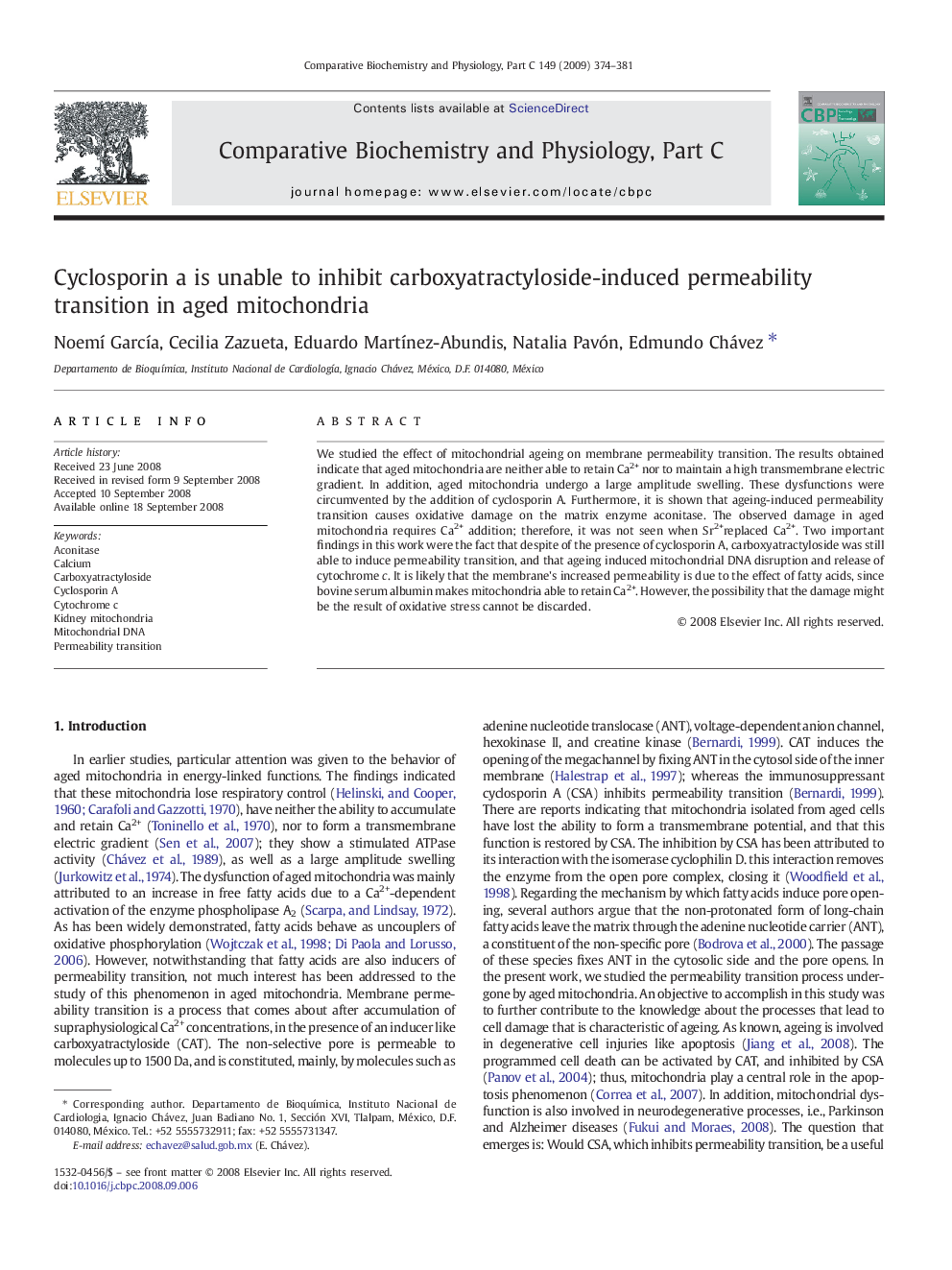| Article ID | Journal | Published Year | Pages | File Type |
|---|---|---|---|---|
| 1977971 | Comparative Biochemistry and Physiology Part C: Toxicology & Pharmacology | 2009 | 8 Pages |
Abstract
We studied the effect of mitochondrial ageing on membrane permeability transition. The results obtained indicate that aged mitochondria are neither able to retain Ca2+ nor to maintain a high transmembrane electric gradient. In addition, aged mitochondria undergo a large amplitude swelling. These dysfunctions were circumvented by the addition of cyclosporin A. Furthermore, it is shown that ageing-induced permeability transition causes oxidative damage on the matrix enzyme aconitase. The observed damage in aged mitochondria requires Ca2+ addition; therefore, it was not seen when Sr2+replaced Ca2+. Two important findings in this work were the fact that despite of the presence of cyclosporin A, carboxyatractyloside was still able to induce permeability transition, and that ageing induced mitochondrial DNA disruption and release of cytochrome c. It is likely that the membrane's increased permeability is due to the effect of fatty acids, since bovine serum albumin makes mitochondria able to retain Ca2+. However, the possibility that the damage might be the result of oxidative stress cannot be discarded.
Keywords
Related Topics
Life Sciences
Biochemistry, Genetics and Molecular Biology
Biochemistry
Authors
Noemà GarcÃa, Cecilia Zazueta, Eduardo MartÃnez-Abundis, Natalia Pavón, Edmundo Chávez,
